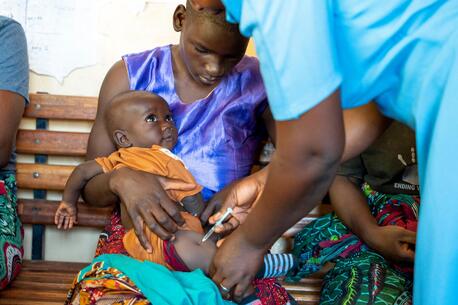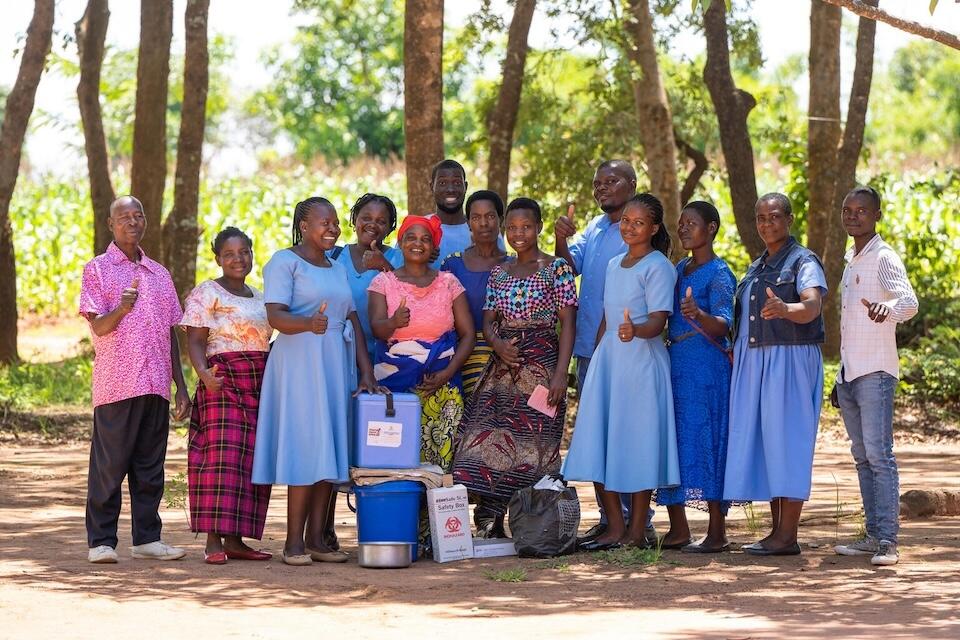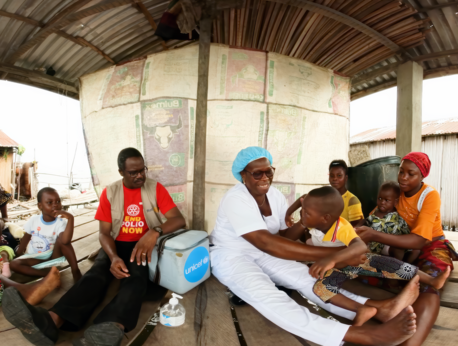
Dispatch From the Front Lines of the Malaria Fight
Malaria is both preventable and treatable — yet it remains one of the world's biggest killers of young children. A community health worker shares how malaria vaccines are saving lives and changing communities in Lilongwe, Malawi.
Every week, Rebecca Kapulula, a community health worker based at the Chilenka Health Center in Lilongwe district, central Malawi, straps a cooler full of vaccines to the back of her bicycle and rides to another village to immunize children against malaria.
Children who receive malaria vaccinations are less likely to get sick with the disease, or if they do, their symptoms are mild. Since the vaccines became available Kapulula says she has seen many positive changes in the communities she serves. Watch the video
Malaria remains one of the three leading causes of death among young children worldwide, after pneumonia and diarrhea. The disease, relatively rare in temperate climates and common in tropical and subtropical areas, is caused by a parasite and spread to humans through the bites of infected mosquitoes. Symptoms include high fever and chills.
Young children in Africa represent the vast majority of malaria-related deaths. In 2022, there were 249 million malaria cases globally, 94 percent of them in Africa. That same year, there were 608,000 malaria-related deaths; 95 percent were in Africa, of which 80 percent were children under age 5.
How UNICEF supports malaria prevention and treatment
UNICEF works with partners to deliver key supplies — including bed nets, rapid diagnostic tests, antimalarial medications and now malaria vaccines — to support malaria prevention, rapid diagnosis and treatment.
The nets have been an essential prevention tool since the 1990s. In 2023, UNICEF’s supply division shipped 13.4 million long-lasting insecticidal nets to 32 countries. UNICEF has also started procuring a new kind of net — designed to counter increasing mosquito resistance to certain insecticides, it performed well in recent tests — and is working on a distribution plan.
Community health workers in high-risk areas are trained to advise families on other methods of prevention, like clearing bushes outside the home, closing windows at dusk and getting rid of any stagnant water.
A multi-country rollout of newly approved malaria vaccines marks a major leap forward in the global fight against the disease — not a replacement strategy
Malaria vaccinations began in 2019 in Malawi, Ghana and Kenya, part of a pilot program supported by UNICEF, Gavi, the Vaccine Alliance, and the World Health Organization, reaching 2 million children across the three countries to date.
The program was shown to reduce symptomatic malaria cases by 75 percent during the 12 months following a three-dose series — paving the way for broader implementation as part of Gavi-supported routine immunization programs.
Cameroon was the first country to administer doses through a routine program, with 19 other countries expected to follow suit this year. In 2023, UNICEF Supply procured and delivered 6.23 million malaria vaccine doses to the three pilot countries plus Burkina Faso, Cameroon and Sierra Leone. Benin received over 200,000 doses in January 2024.
Alongside other well-established preventive measures (nets, antimalarial medications), UNICEF estimates that the malaria vaccine will save 627,000 lives every year — including close to 483,000 children under age 5.

Immunization work is central to UNICEF's mission, working with partners in disease prevention and treatment through primary health care systems. UNICEF is the largest single vaccine buyer in the world, procuring more than 2 billion doses of vaccines annually for routine immunization and outbreak response on behalf of nearly 100 countries.
UNICEF also helps build capacities within local health systems to improve immunization coverage — supporting the training of health care workers, investing in the infrastructure needed for vaccine storage and delivery and providing technical expertise — while advocating to governments for increased support for immunization programs.
Support UNICEF’s work around the world to support and improve children’s health. Donate today.


